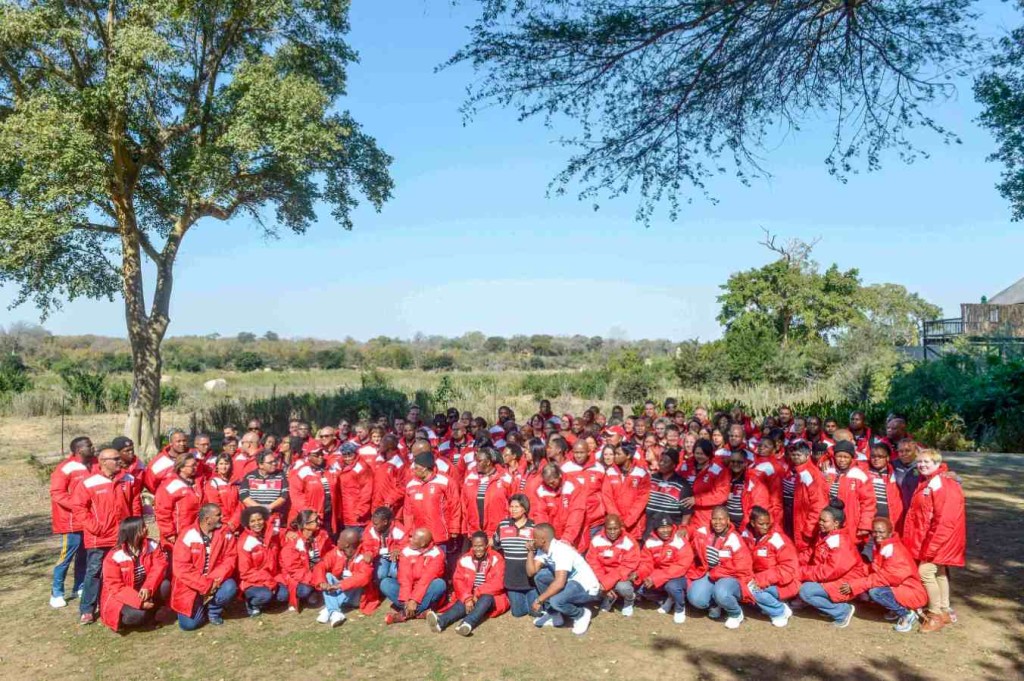KFC Mini Cricket is the country’s biggest grassroots development programme, and continues to grow from strength to strength.
SAcricketmag.com were at Kruger National Park for the KFC Mini Cricket National Seminar this week – a camp set up by CSA and Playmakers that is dedicated to the coaches to reflect on the hard work they’ve done throughout the year, and what the aims are for the future. A small group of coaches from each section of the country took part, which they will share and extend to the provincial camps.
Over 114 000 kids take part in the programme and these numbers are expected to grow significantly. No less than a staggering 8 774 coaches across 5 584 schools pour out their time voluntarily to get these kids active and show them the basics of the sport.
While the emphasis throughout the years has largely been placed on growing the numbers, it’s getting to a stage where tangible results are becoming an increasingly more substantial focal point. Turning quantity into quality was the overarching aim pointed out in the seminar. A large majority of the current Proteas side were exposed to the programme at some point in their childhoods, while the likes of Temba Bavuma and Proteas Women’s bowler Marcia Letsoalo were introduced to the game thanks to it.
KFC Africa Marketing Director, Thabisa Mkhwanazi, tells SACricketmag.com that the continued efforts to push these kids towards excellence is going to have a snowball effect on the number of kids that get involved in the first place.
‘The coaches are the heartbeat of the programme for us, so the National Seminar was a chance for them to connect, to learn and be inspired. It’s great to reflect on the season and share the vision for the future,’ she says.
‘A lot of these coaches are teachers from the schools, and a lot of them have been involved for years, which suggests that there’s something special going on here.’
The kids meanwhile are exposed to numerous action zones during the professional season, while the Proteas vs Mini Cricket kids matches throughout the year is an award-winning concept that offers some of the schools the chance to play against their heroes.
‘We’ve (KFC) extended our partnership with the Proteas’ T20 internationals and the Ram Slam T20 Challenge, and this has and will give kids the chance to be exposed to top-level cricket by getting involved in the action zones,’ she added. ‘It’s so important because it’s amazing how these kids model their action on the Proteas and look up to them. It gives them such a boost and makes them feel like they could one day follow in their footsteps.
CSA General Manager and former SA fast bowler Corrie van Zyl believes the key behind getting the coaches to strive for excellence is their KFC Incentive Scorecard, which calculates how successful they’ve been in getting the kids involved and incorporating them into talent hubs. Last year the Northerns Cricket Union won R1.2-million at the CSA Awards for being the most successful in achieving this.
‘The scorecard holds people accountable for certain outcomes, and it drives behaviour which has proved to be very successful,’ Van Zyl tells SACricketmag.com.
‘This conference is about going an extra step – excellence. We need to have good players coming through, and empowering and training up these coaches is vital. We need people to love the game but we also need people to coach the proper basics of the game at the same time. It would be unfair to say that there wasn’t excellence before, you just need to see the players that have come through. But there’s certainly a stronger focus on increasing the excellence.
‘The Proteas are really invested in it too. The guys are very committed to it, and it’s testimony to growing the sport.’
The growing popularity has actually caused a challenge that CSA will now need to take greater care of – plugging the performance gap between soft-ball and hard-ball cricket. The transition has proved difficult due to scarce hard-ball facilities in disadvantaged areas.
‘Identifying the best Mini Cricket kids will be encouraged to play hard-ball cricket. You need people that can spot that talent and our aim is to train up coaches to do that. There’s currently a lack of facilities, but that’s why performance hubs we have for identifying talent are so important. We don’t want to lose these kids, we want to get them involved as much as possible.’
Photo: Sydney Seshibedi/Gallo Images







